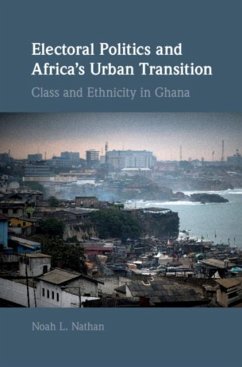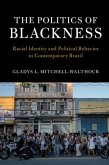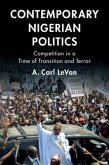Two aspects of contemporary urban life in Africa are often described as sources of political change: the emergence of a large urban middle class and high levels of ethnic diversity and inter-ethnic social contact. Many expected that these factors would help spark a transition away from ethnic competition and clientelism toward more programmatic elections. Focusing on urban Ghana, this book shows that the growing middle class and high levels of ethnic diversity are not having the anticipated political effects. Instead, urban Ghana is stuck in a trap: clientelism and ethnic voting persist in many urban neighborhoods despite changes to the socio-economic characteristics and policy preferences of voters. Through a unique examination of intra-urban variation in patterns of electoral competition, Nathan explains why this trap exists, demonstrates its effects on political behavior, and explores how new democracies like Ghana can move past it.
Dieser Download kann aus rechtlichen Gründen nur mit Rechnungsadresse in A, B, BG, CY, CZ, D, DK, EW, E, FIN, F, GR, HR, H, IRL, I, LT, L, LR, M, NL, PL, P, R, S, SLO, SK ausgeliefert werden.









